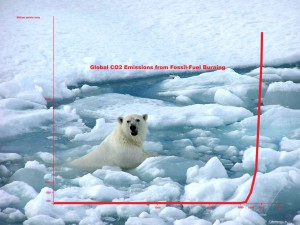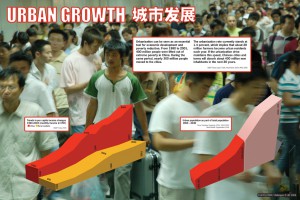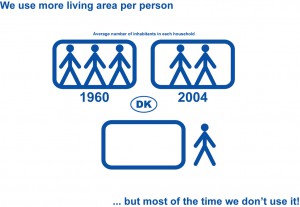Car-free cities (Ongoing)
Action research on urban mobility and public space. Henrik Valeur, Roskilde University (Mobility, Planning and Urban Studies), CONCITO and Bureau Detours.
This project addresses environmental and climate issues related to the transition to green mobility and the creation of green streets in cities.
Report: Scenarier for et bilfrit København [9MB] pdf ![]()
Article: Action Research in Planning Education [0.9MB] pdf ![]()
The urban transition of India
Research by design on the issues of air, water, food, housing and mobility in Indian cities. Henrik Valeur, Indian Institute of Science, Eco & Agro Resource Management, Itinerant Permaculture, Shrsti Space, Chandigarh College of Architecture. Sponsored by the Danish Arts Foundation, Danmarks Nationalbank’s Anniversary Foundation of 1968, Dreyer Foundation.
“Will urbanization lead to opportunities, prosperity and welfare for the many or will urban “ills” such as stress, physical inactivity, social isolation and pollution cause more misery?”
Articles: Chandigarh – an Indian adventure [156K] pdf ![]() · Hvad har vi lært af Chandigarh? [89K] pdf
· Hvad har vi lært af Chandigarh? [89K] pdf ![]() · Grow your own food [81K] pdf
· Grow your own food [81K] pdf ![]() · Bangalore – the urban schism [112K] pdf
· Bangalore – the urban schism [112K] pdf ![]() · The horrendous costs of motorized transportation in (Indian) cities [388K] pdf
· The horrendous costs of motorized transportation in (Indian) cities [388K] pdf ![]() · Alternatives to the automobile in the Indian_City [131K] pdf
· Alternatives to the automobile in the Indian_City [131K] pdf ![]() · The slum dweller [88K] pdf
· The slum dweller [88K] pdf ![]() · Making India slum-free [515K] pdf
· Making India slum-free [515K] pdf ![]() · Running out of water – in India [763K] pdf
· Running out of water – in India [763K] pdf ![]()
Book: India: the Urban Transition ![]()

Climate Change, Cities and Urban Life
Research project on the relationship between climate change and cities by Henrik Valeur. Used for seminars, lectures, articles and educational material for college teachers. Sponsored by the Danish Ministry of Education.
Are we at war with nature or is peaceful co-existence still an option?
Presentations: Cradle to Cradle by Dominic Balmforth ![]() · Curitiba by Henrik Valeur
· Curitiba by Henrik Valeur ![]() · Nordhavnen by Søren Leth
· Nordhavnen by Søren Leth ![]() · Vertical greenhouse by Tanja Jordan
· Vertical greenhouse by Tanja Jordan ![]() · Masdar by Henrik Valeur
· Masdar by Henrik Valeur ![]()
Articles: Vores okologiske fodspor (Our ecological footprint) [220K] pdf ![]() · Byerne og klimaet (The cities and the climate) [720K] pdf
· Byerne og klimaet (The cities and the climate) [720K] pdf ![]()

The Harmonious City
Research project on eco-friendly planning methods and building technologies in Denmark by UiD/Henrik Valeur, Kristoffer Weiss, Zhang Meng and Cornelia Burnett. Exhibited at Shanghai Urban Planning Exhibition Center, P.R.China. Sponsored by the Realdania Foundation.
Research areas: planning policies and land-use regulations, sustainable transportation and traffic planning, water supply, renewable energy and district heating, indoor climate, historical preservation, creative industries and new urban lifestyles.
Catalogue: ‘The Harmonious City’ ISBN 87-90668-64-2 
Webpage

CO-EVOLUTION: the challenges
Research project on problems and possibilities related to the processes of urbanization in China by UiD/Henrik Valeur, Karin Lindgren, Lea Bolvig, Annelie Håkansson and Ma Liang. Sponsored by the Danish Ministry of Culture.
China has the 4th largest, and the fastest growing major economy in the world. Over the past 20 years some 400 million Chinese people have been lifted out of extreme poverty – mainly as the result of rapid and extensive urbanization. Within the next 20 years, 400 million more people are expected to move to the Chinese cities. Almost 50% of all new floor area in the world is being constructed in China. 16 of the 20 most polluted cities in the world are in China, and its future resource consumption may easily surpass that of any other country in the world.
Catalogue: ‘CO-EVOLUTION’ ISBN 87-90668-61-8 ![]() · ‘CO-EVOLUTION’ ISBN 978-7-5083-5323-4
· ‘CO-EVOLUTION’ ISBN 978-7-5083-5323-4 
Webpage

Future Housing Now!
Analysis of contemporary housing trends by UiD/Henrik Valeur, Fredrik Fritzson and Søren Chr Madsen for the exhibition NEXT?. Sponsored by Swedish Industrial Design and Form/Design Center.
In most cases, contemporary housing typologies seem adopted to needs and demands related to postwar ideals of the neighbourhood and the nuclear family. Yet, today singles account for 40% of all households in Sweden and the home is no longer the center of many people’s lifestyle. Furthermore, recent studies show that most people appreciate good relations with their neighbours, but that they do not want to interact socially.
Webpage

CoMa
Research project on regional urbanization and multicultural societies by Henrik Valeur and Fredrik Fritzson. Sponsored by the Realdania Foundation, the Danish Ministry of Culture, Region Skåne, the Greater Metropolitan Area of Copenhagen, the City of Malmö, and more.
The process of regional urbanization can be seen as a response to the emergence of a multicultural network society. Though many of the inhabitants of the urban region choose to live in rural settings, nearly all have direct access to most urban facilities. The infrastructures which provide the accessibility also enable the formation of more or less autonomous tribes and ghettos. Thus the urban region encompasses many different worlds, co-existing without necessarily interconnecting.
Website
